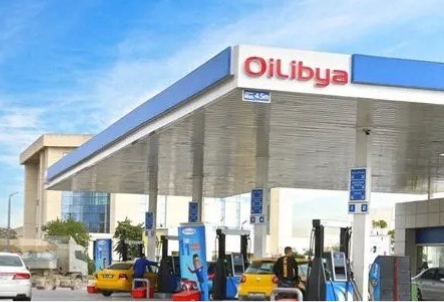
14 April 2014, Lagos – The Jetty and Petroleum Tank Farms Owners of Nigeria (JEPTFON) has lauded the achievements of the Minister of Petroleum Resources, Mrs. Diezani Alison-Madueke, and condemned as “malicious” the recent negative reports in the media against her by persons it described as “some disgruntled and misguided elements, who mask themselves as anti-corruption agents.
The body further noted that those behind the negative reports “will never acknowledge the achievements of the minister in the oil and gas industry as their-stock-in-trade is to feed the public with deceit and falsehood.”
The association declared its unflinching support for the innovative and effective leadership of the Petroleum Minister, stating that, “as key players in the sector, we are well placed to commend her for the landmark changes she had made in the ministry and in the oil and gas sector.
“She has successfully fought to transform Nigeria’s oil and gas industry so that all Nigerians benefit. She successfully fought for the enactment of the Nigerian Content Act, which aims to increase the percentage of petroleum industry contracts that are awarded to indigenous Nigerian businesses. The minister saw to the passage of this law so as to end the domination of the sector by foreign operators and thereby empower our indigenous entrepreneurs and operators,” the association said.
While noting that Alison-Madueke had sought to reduce corruption and enthrone transparency in the oil and gas industry by continuously pushing for the removal of government subsidies on fuel prices, the association pointed out the numerous measures put in place by the minister to reduce corruption, enthrone transparency and increase participation of Nigerians in the oil and gas industry.
It said: “She (the minister) supported the discontinuation of the subsidy on the grounds that it “poses a huge financial burden on the government, disproportionately benefits the wealthy, encourages inefficiency, corruption and diversion of scarce public resources away from investment in critical infrastructure. It was these same critics who would always allege a multitude of sins against her that stridently opposed the introduction of this laudable policy by claiming that it will impoverish the masses.”
According to JEPTFON, “the minister has been championing the passage of the Petroleum Industry Bill (PIB) in order to create a conducive business environment for petroleum operations; enhance exploration and exploitation of petroleum resources in Nigeria for the benefit of Nigerian people; optimise domestic gas supplies, particularly for power generation and industrial development; establish a progressive fiscal framework that encourages further investment in the petroleum industry, while optimising revenues accruing to the government; and establish commercially oriented and profit-driven oil and gas entities.
“The PIB seeks to establish a legal, fiscal and regulatory framework for the petroleum industry in Nigeria in order to rejuvenate the sector, which experts believed has been stagnant for many decades in a dynamic hydrocarbon international marketplace that has built economies of many countries in Asia. This Bill which will deregulate and liberalise the downstream sector; create efficient and effective regulatory agencies; promote transparency and openness in the administration of petroleum resources in Nigeria, has suffered unjustified delay in the legislature,”the group said.
JEPTFON alleged that “the same critics who sponsored the 2012 oil subsidy protest and who are blocking the passage of the PIB and who profit in the decadence of the oil industry are now presenting themselves as saints.”
JEPTFON added: “The achievements in the industry such as local content growth, indigenous companies participating at par with international players, etc, championed by the minister, are lost in the noise. All the gains made in gas-to-power and the attempts by the minister, to reposition the industry with the PIB are lost in the cacophony of misplaced headlines of jet chartering.”
It warned that all of these distractions have negative effects on the international community’s perception of Nigeria.
“The intention of these detractors is to create problems in the oil industry, dislocate the distribution of petroleum products, play politics with a very strategic sector of our economy, cast the government in a bad light as well as subject our people to undue suffering all in a bid to sustain their mischief. As we are approaching 2015 election, it is very important to stop playing politics with our industry for the sake of the masses and country at large.”
– This Day



